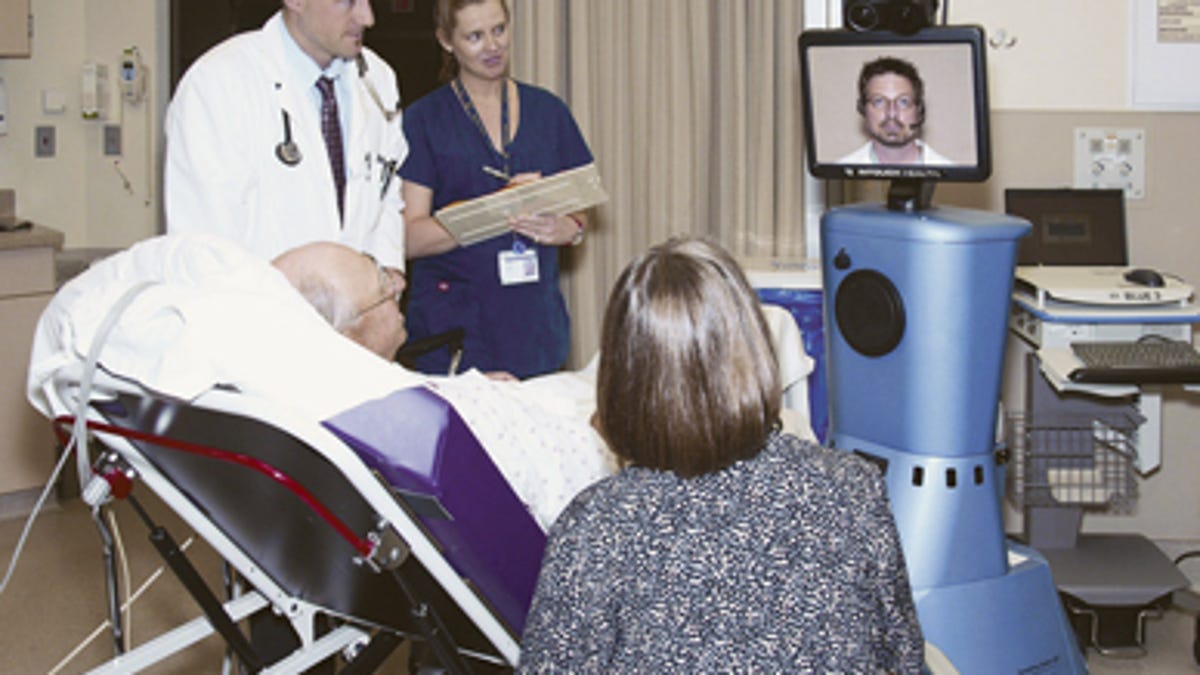Concussion bot to debut at Northern Arizona football game
Mayo Clinic researchers are gearing up to test their new teleconcussion robot on the sidelines of tonight's Northern Arizona University football game.

Just a day after the NFL and more than 4,500 former football players reached a $765 million settlement over concussion-related lawsuits, a telemedicine robot will make its debut on the sidelines of tonight's Northern Arizona University football match against the University of Arizona in Tucson.
Concussions have been a hot topic in high-contact sports in recent years as evidence mounts that they are a chronic problem with long-lasting effects. And with more than 1 million athletes in the US suffering from concussions every year, researchers at the Mayo Clinic hope their sidelined robot on wheels will help assess athletes with suspected concussions quickly so that those deemed unfit to continue to play do not.
"Athletes at professional and collegiate levels have lobbied for access to neurologic expertise on the sideline," Bert Vargas, a neurologist at Mayo Clinic leading the research, said in a news release. "As we seek new and innovative ways to provide the highest level of concussion care and expertise, we hope that teleconcussion can meet this need and give athletes at all levels immediate access to concussion experts."
Throughout the Northern Arizona University football season, the bot will allow a neurology specialist to remotely control its camera system and assess patients for concussion symptoms -- as well as consult the sideline medical personnel -- from miles away in real time.
But collegiate-level football may not be the ultimate focus. Dr. Vargas says that because nearly 60 percent of US high schools lack access to an athletic trainer, the younger athletes are the most susceptible to concussions with the fewest "safeguards" to identify them at the time of injury: "Teleconcussion is one way to bridge this gap regardless of when or where they may be playing."
This isn't the Mayo Clinic's first foray into telemedicine. Researchers developed a telestroke program back in 2007 to bring stroke expertise to some of the 40 percent of Arizona residents who live in areas without it. Since then, almost 3,000 emergency consultations have taken place between Mayo neurologists and remote patients for brain-related emergencies such as strokes.
Then, in 2011, the Mayo Clinic expanded this focus to include the evaluation of concussions, and coined the term "teleconcussion" to describe the concept of assessing possible concussion patients remotely.
If the researchers deem this clinical trial a success, maybe some of that plump $765 million piggy bank will help fund the installation of remotely controlled concussion bots on the sidelines of more football games in the years to come.

